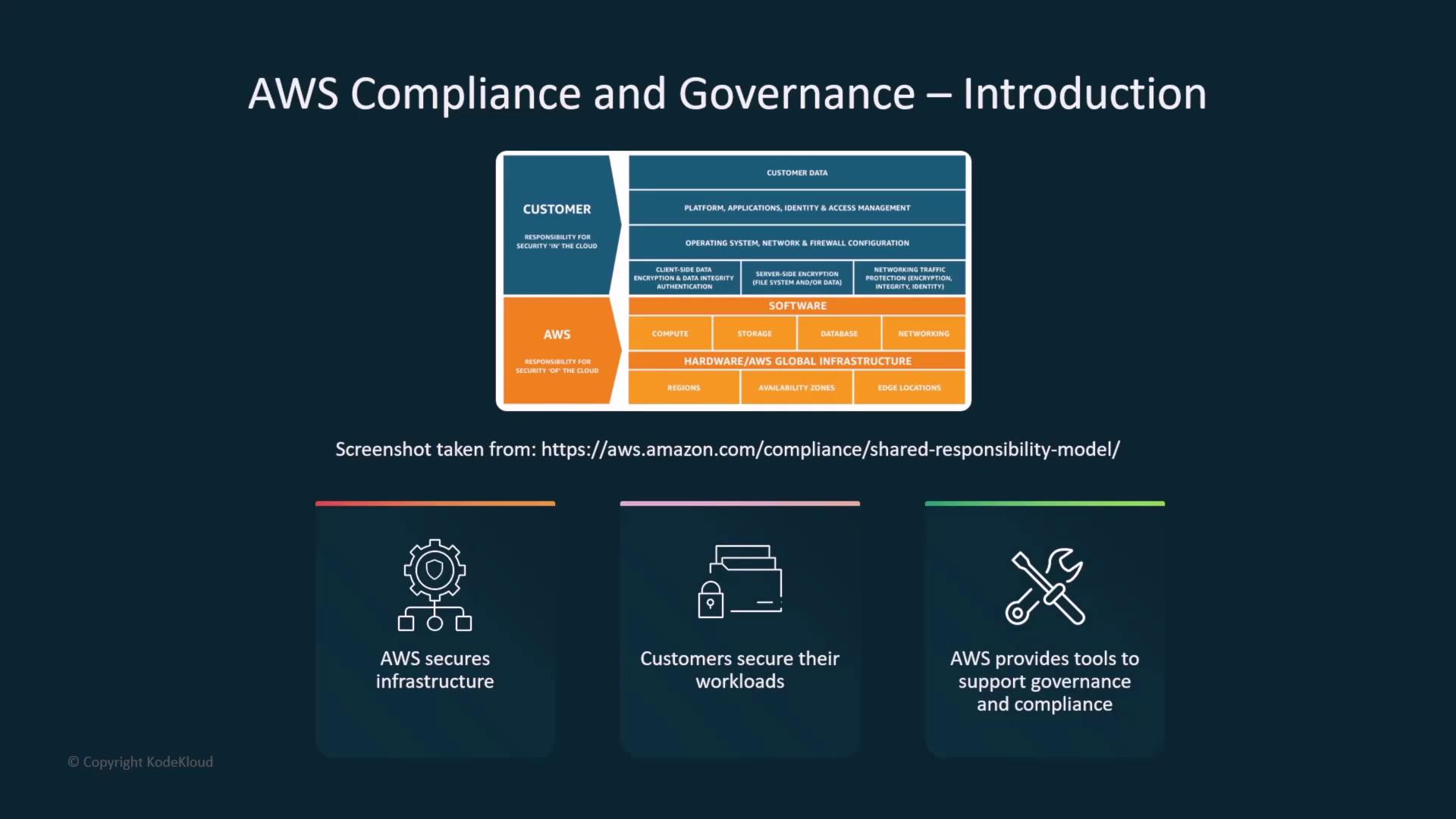
Key AWS Governance and Compliance Services
Below is an overview of the key AWS services that simplify compliance tasks and support effective governance:AWS Artifact
Every AWS account benefits from AWS Artifact, a central repository that provides access to all enterprise agreements with AWS, along with regulatory attestations and global compliance certifications such as PCI DSS and ISO 27001. Although the interface may appear slightly different per account, its core function remains the same: delivering centralized, comprehensive compliance information and third-party reports to streamline audit processes.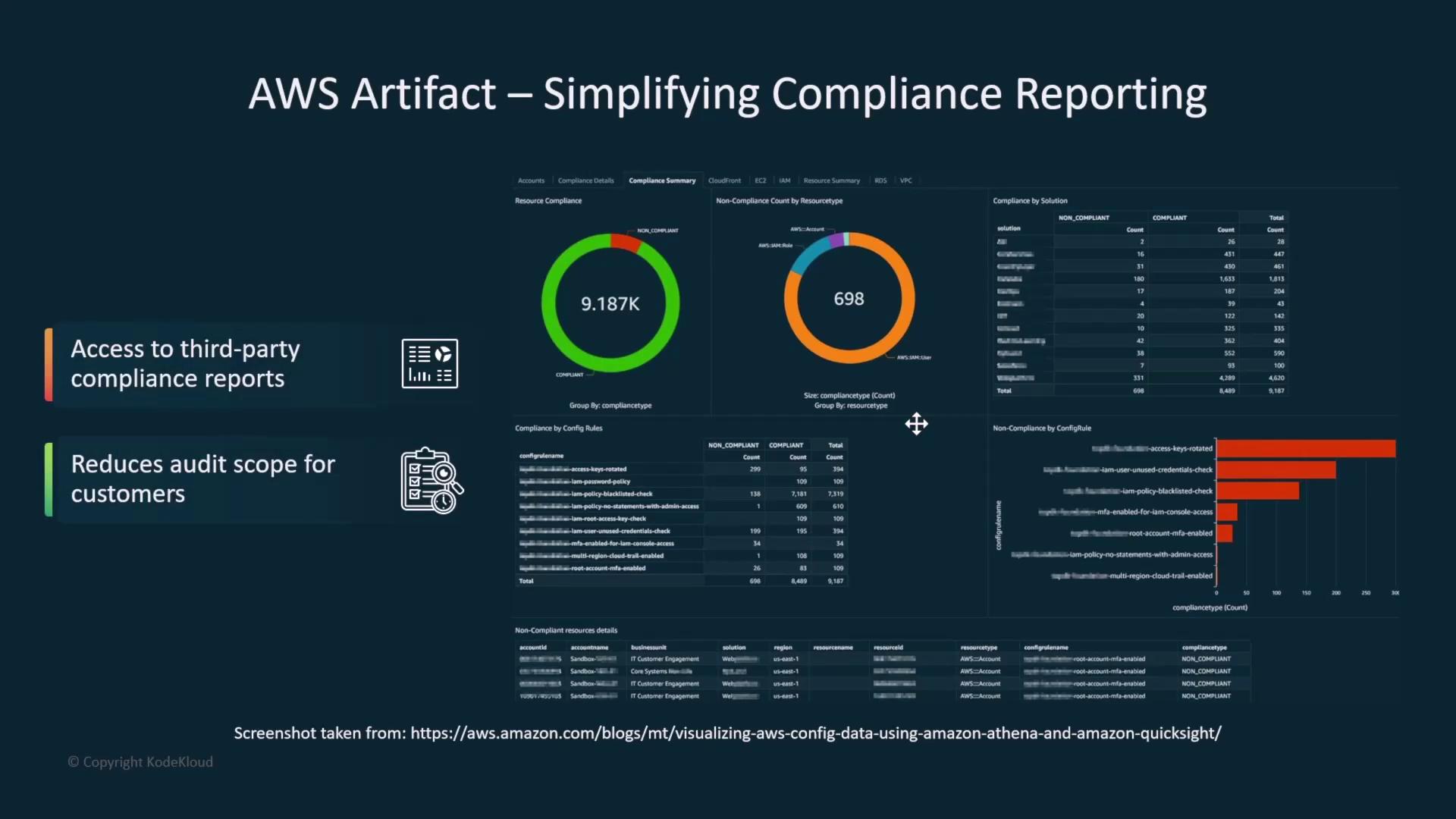
Data Visualization and Governance Tools
For effective regulatory compliance, analyzing and visualizing data is critical. AWS offers several tools to help you monitor data quality, identify gaps, detect Personally Identifiable Information (PII), and enforce governance policies. Key tools include:- SageMaker Data Wrangler
- AWS Glue DataBrew
- Custom Jupyter Notebooks using Python libraries such as Pandas, Scikit-Learn, and Seaborn
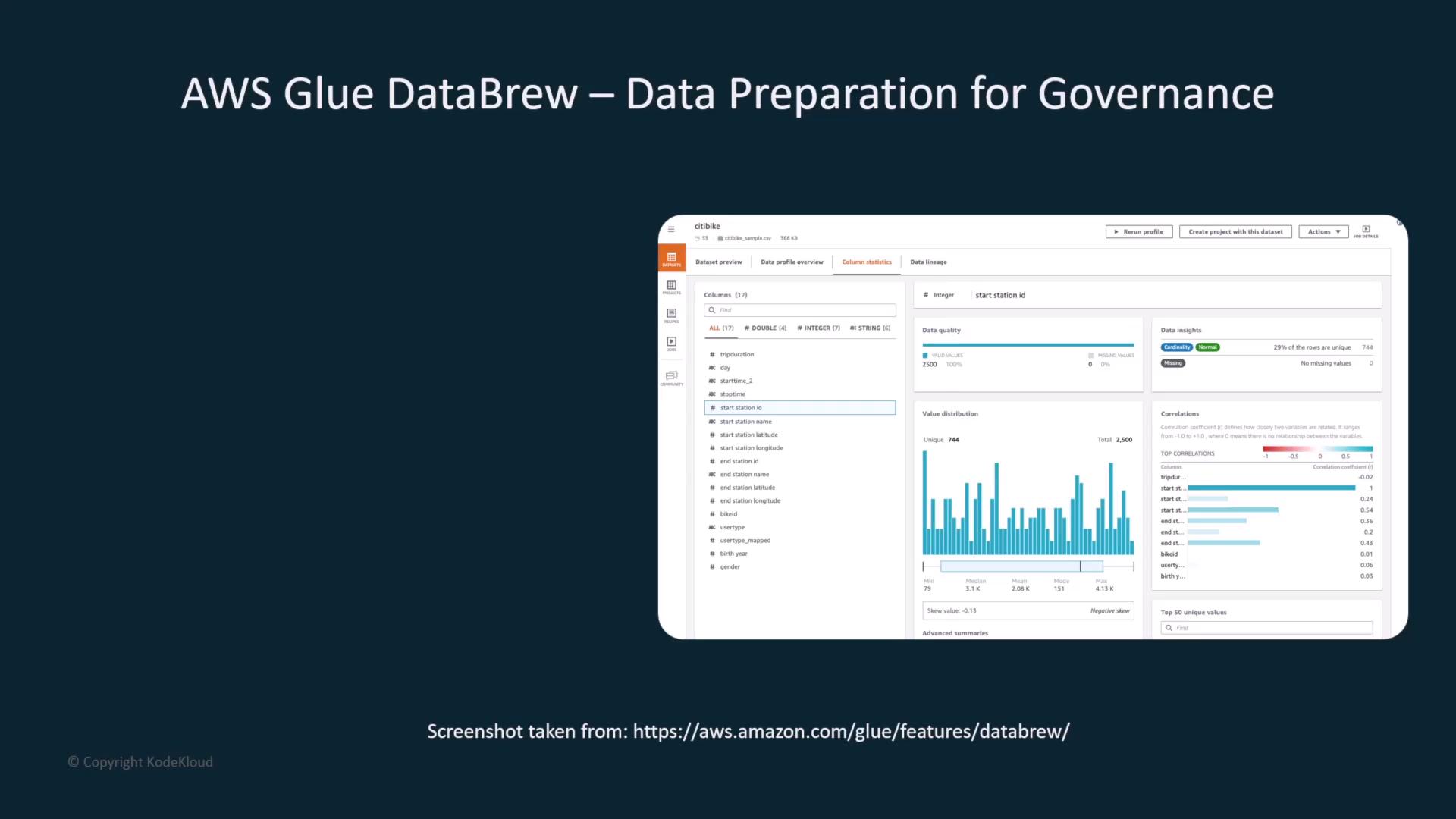
AWS Lake Formation
AWS Lake Formation simplifies the process of setting up and managing secure data lakes on Amazon S3 with granular access controls. You can define permissions at the column, row, and cell levels—capabilities that go beyond standard IAM policies. This fine-grained control is crucial for restricting data access to authorized users only. Additionally, Amazon S3 now offers eight tiers of data management, including a high-performance tier, enabling better lifecycle management and cost optimization. These enhanced storage options help ensure that archived data remains immutable and compliant with regulatory standards.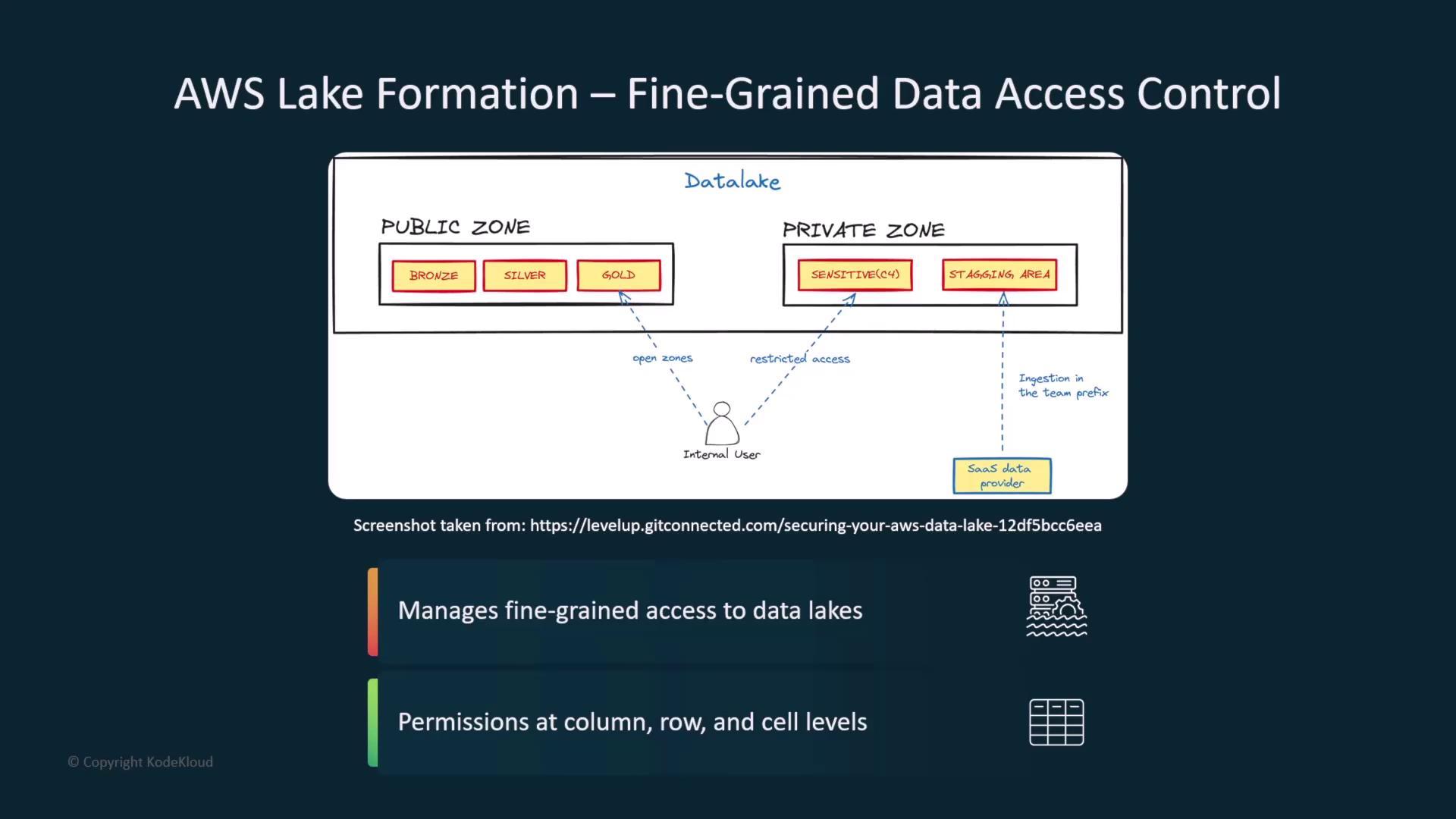
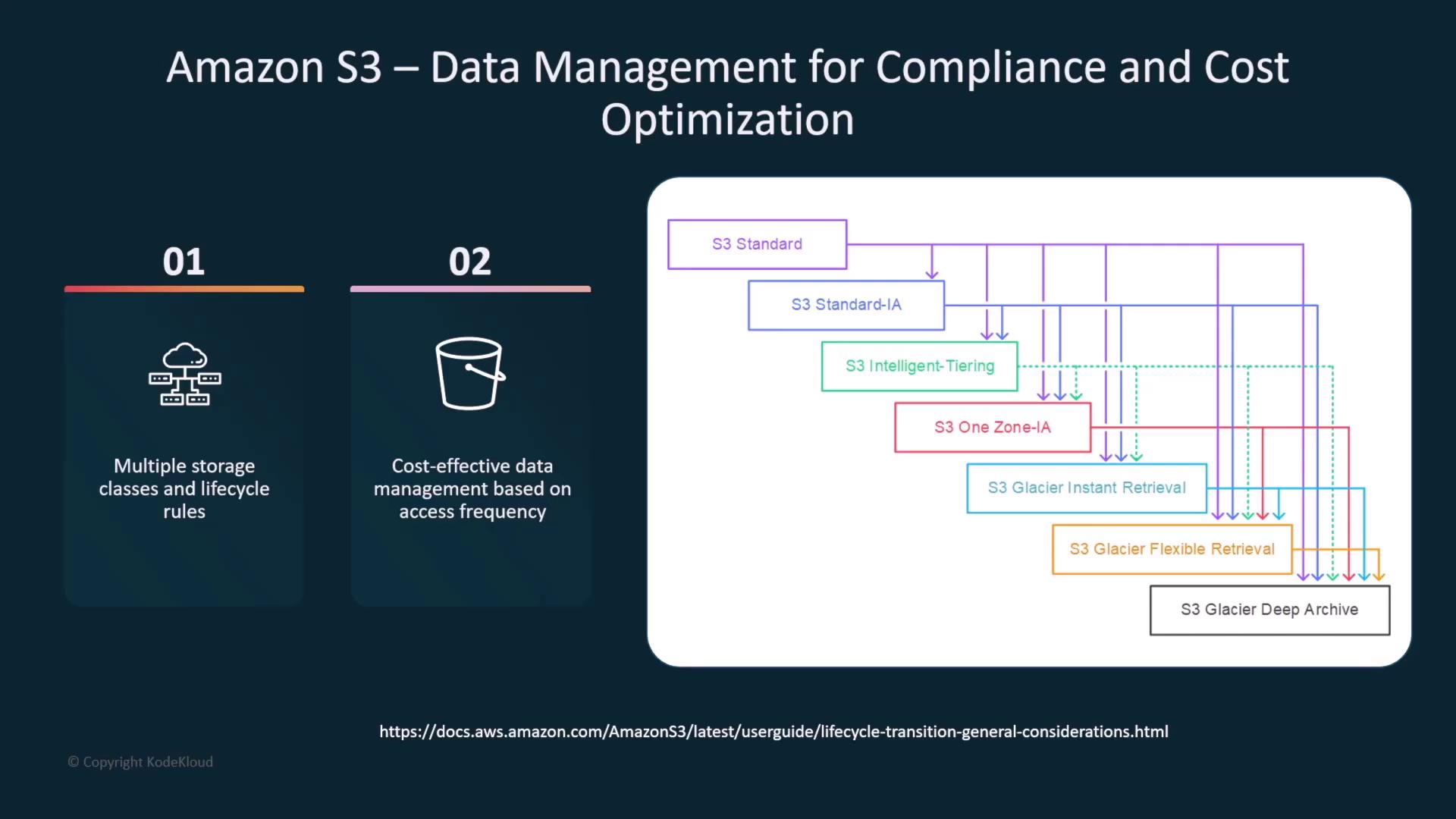
Lifecycle policies in Amazon S3 help ensure that data, once archived, remains immutable until explicitly retrieved—an important factor for compliance and audit readiness.
AWS SageMaker Clarify
AWS SageMaker Clarify provides critical insights into your machine learning models by analyzing input and output data, detecting biases, and monitoring for drift. This ensures your models remain fair and perform consistently over time, supporting accountability and transparency in AI deployments.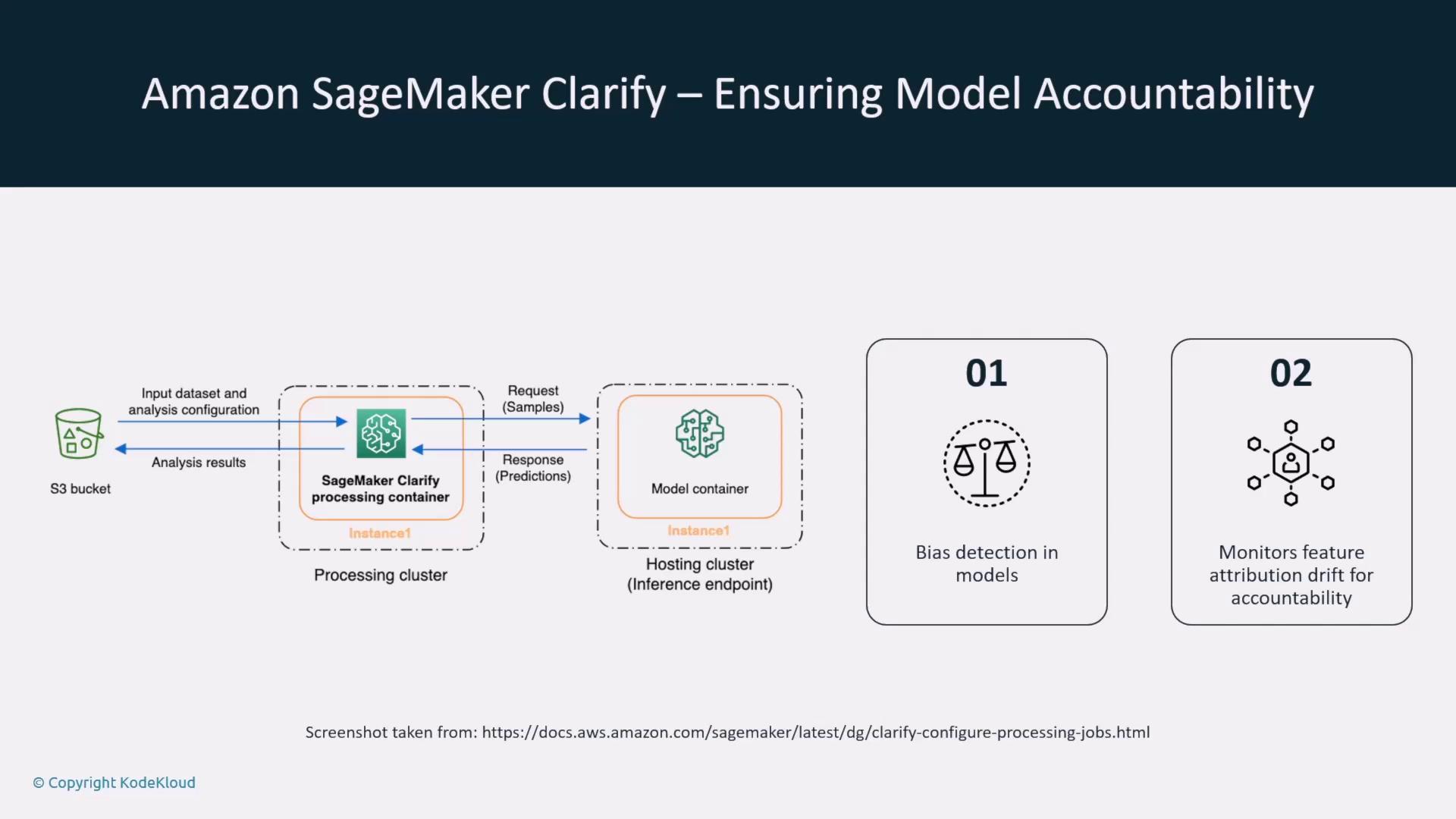
AWS Config and CloudTrail
AWS Config
AWS Config continuously monitors and records your AWS resource configurations against both AWS-managed and custom rules. For example, if an EC2 instance is accidentally left exposed to the public internet, AWS Config can trigger notifications or automated remediation actions to maintain compliance and support self-healing infrastructures.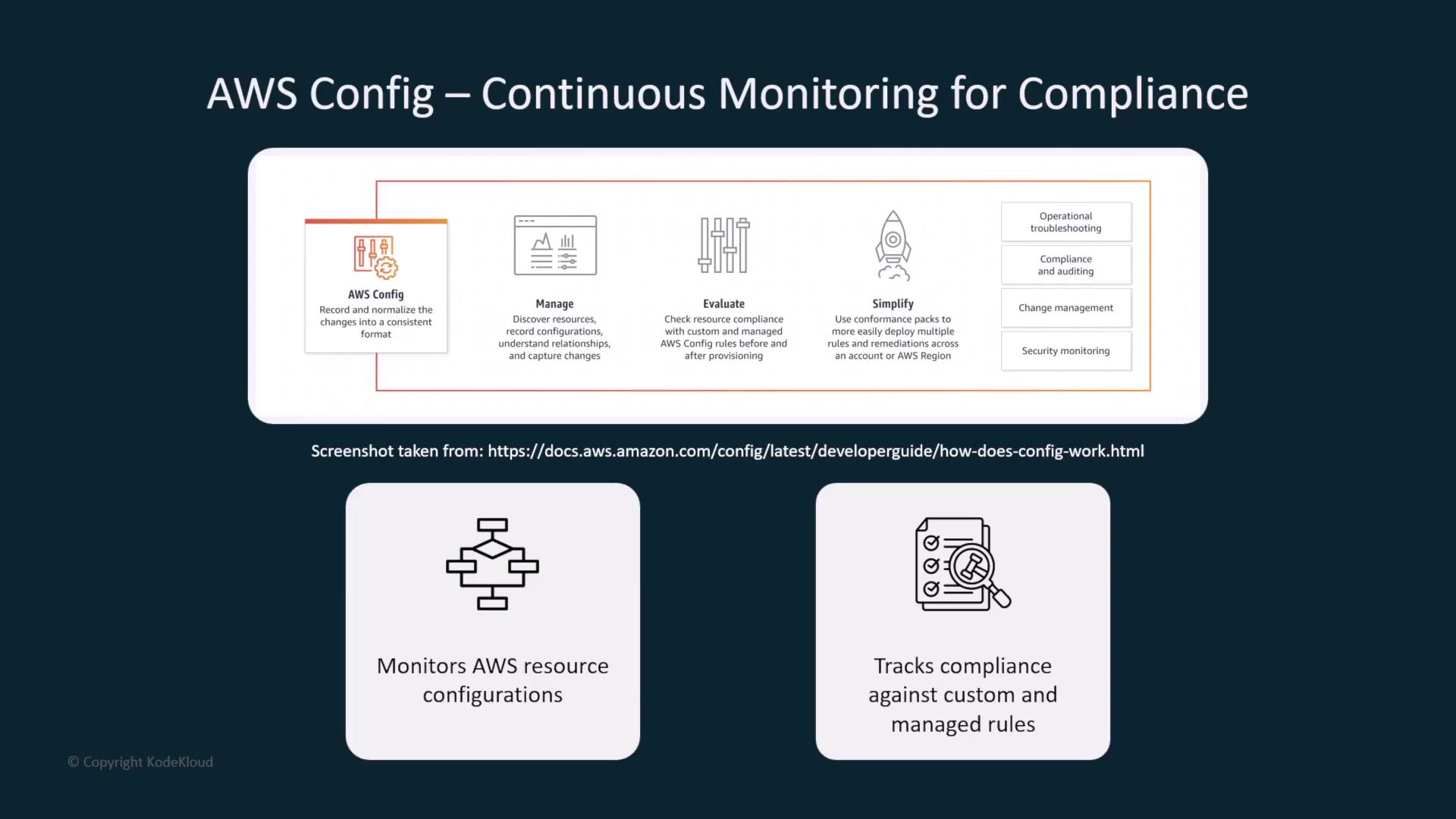
AWS CloudTrail
AWS CloudTrail logs every API call and user activity within your account, which is essential for forensic analysis and regulatory audits. By capturing detailed event histories, CloudTrail provides a critical audit trail that helps enterprise environments maintain transparency and quickly address any security issues. It’s important to enable CloudTrail in older accounts to ensure your audit trail is complete.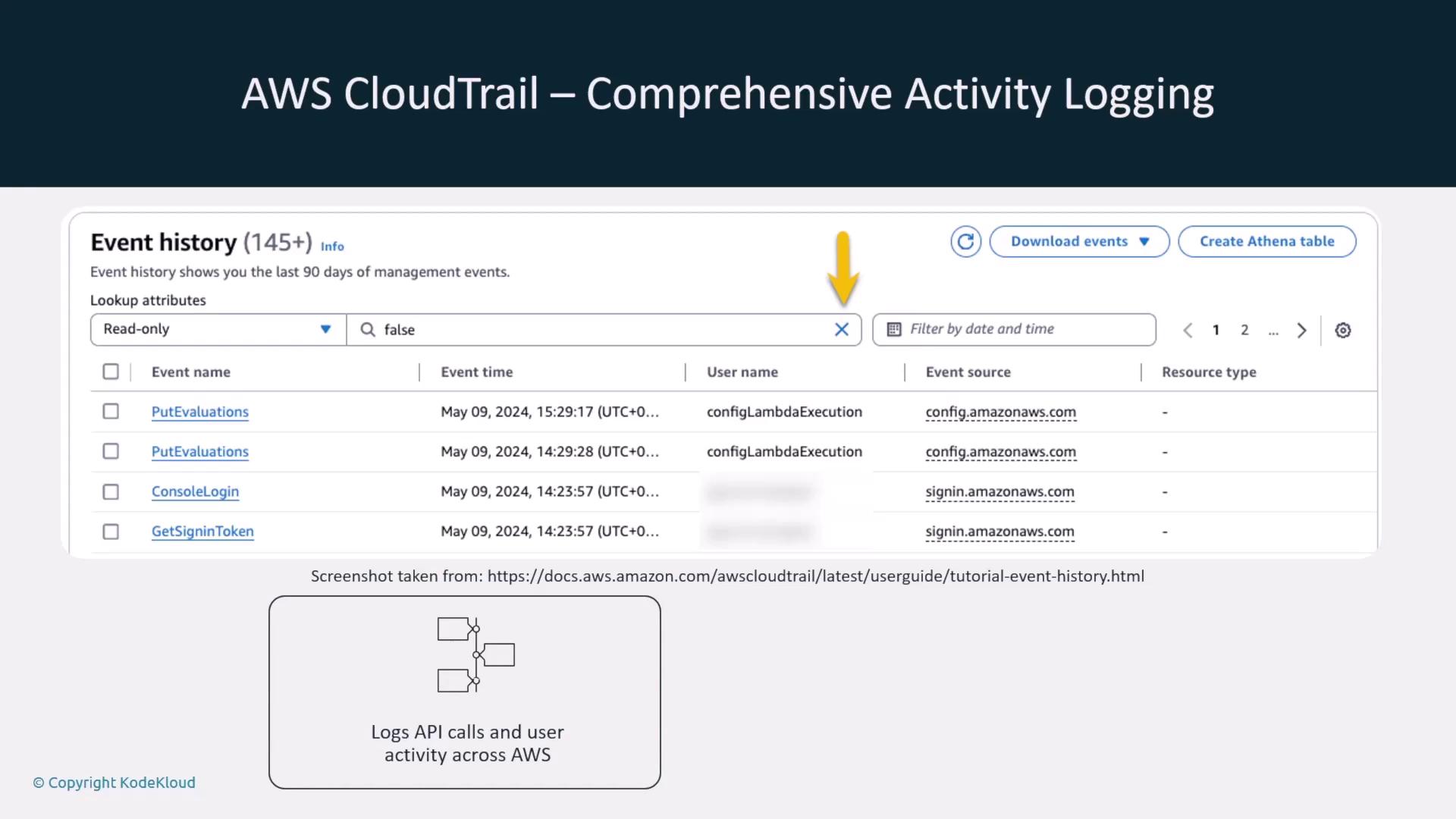
AWS Inspector and Audit Manager
AWS Inspector
Amazon Inspector automatically assesses the security of your virtual machines, containers, and serverless applications by identifying vulnerabilities based on known CVEs. This proactive scanning enables quicker remediation of security issues, playing a key role in maintaining a secure and compliant environment.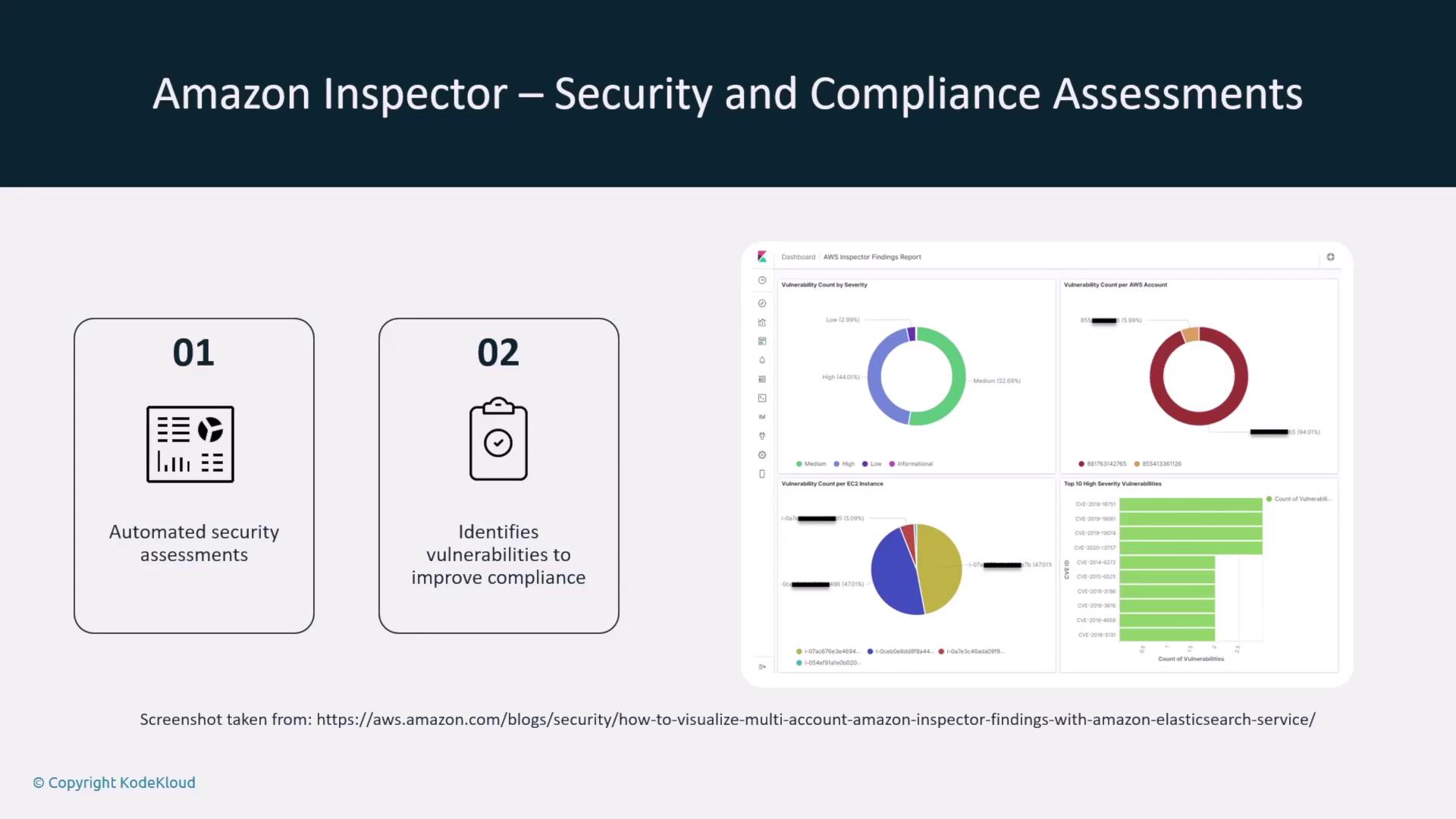
AWS Audit Manager
AWS Audit Manager simplifies compliance management by automating the collection of evidence across your AWS services. It gathers auditable data from various sources, making audit preparation more efficient. Note that while Audit Manager streamlines the process, it does not automatically assess compliance.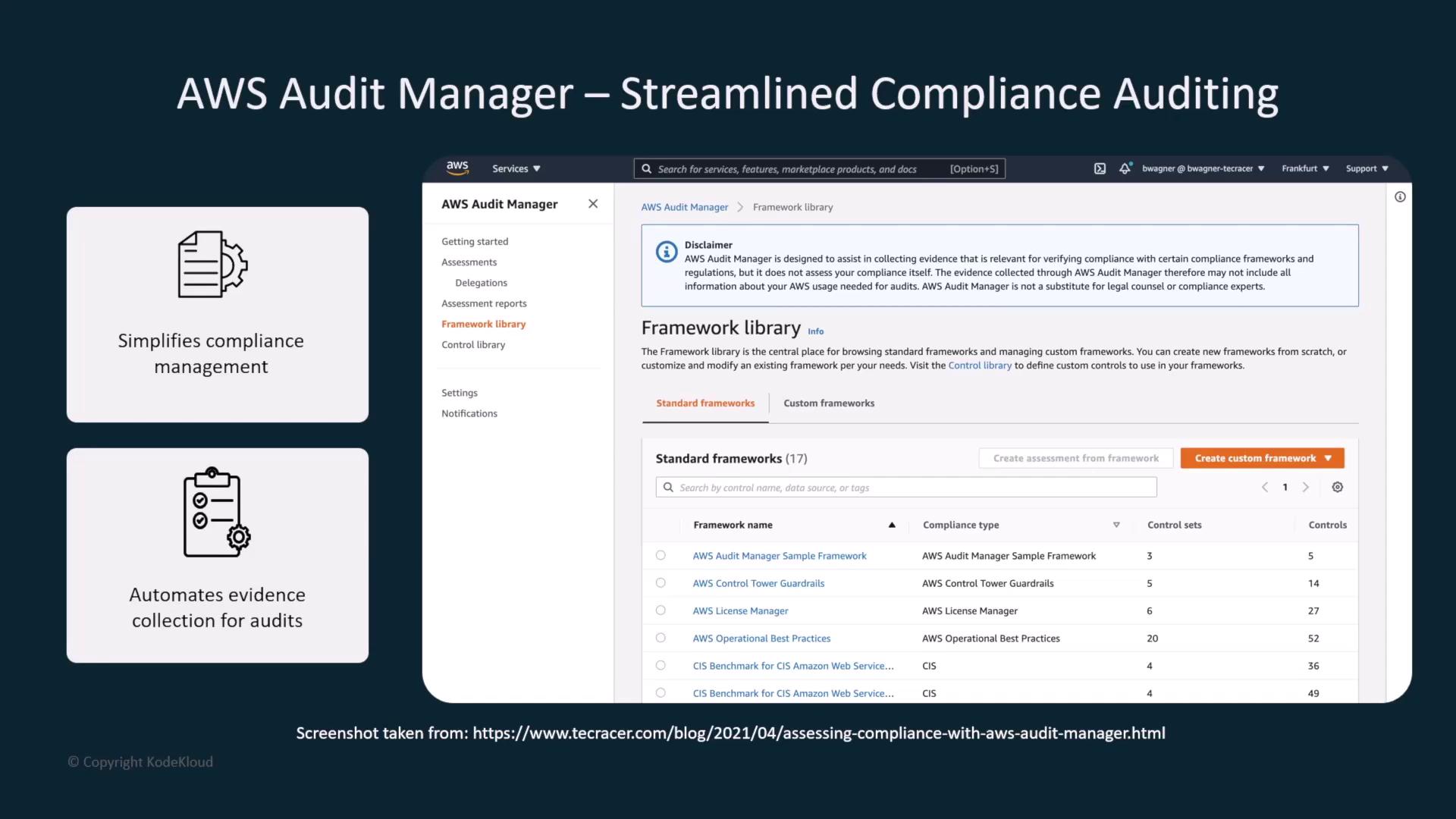
AWS Trusted Advisor
AWS Trusted Advisor provides ongoing recommendations across critical areas such as security, performance, fault tolerance, cost optimization, and service limits. It continuously checks your environment for potential issues like underutilized resources or security vulnerabilities. Trusted Advisor alerts, sent via email to the primary account owner and key stakeholders, help you quickly address any identified issues. Full functionality is available with a Business or Enterprise support plan.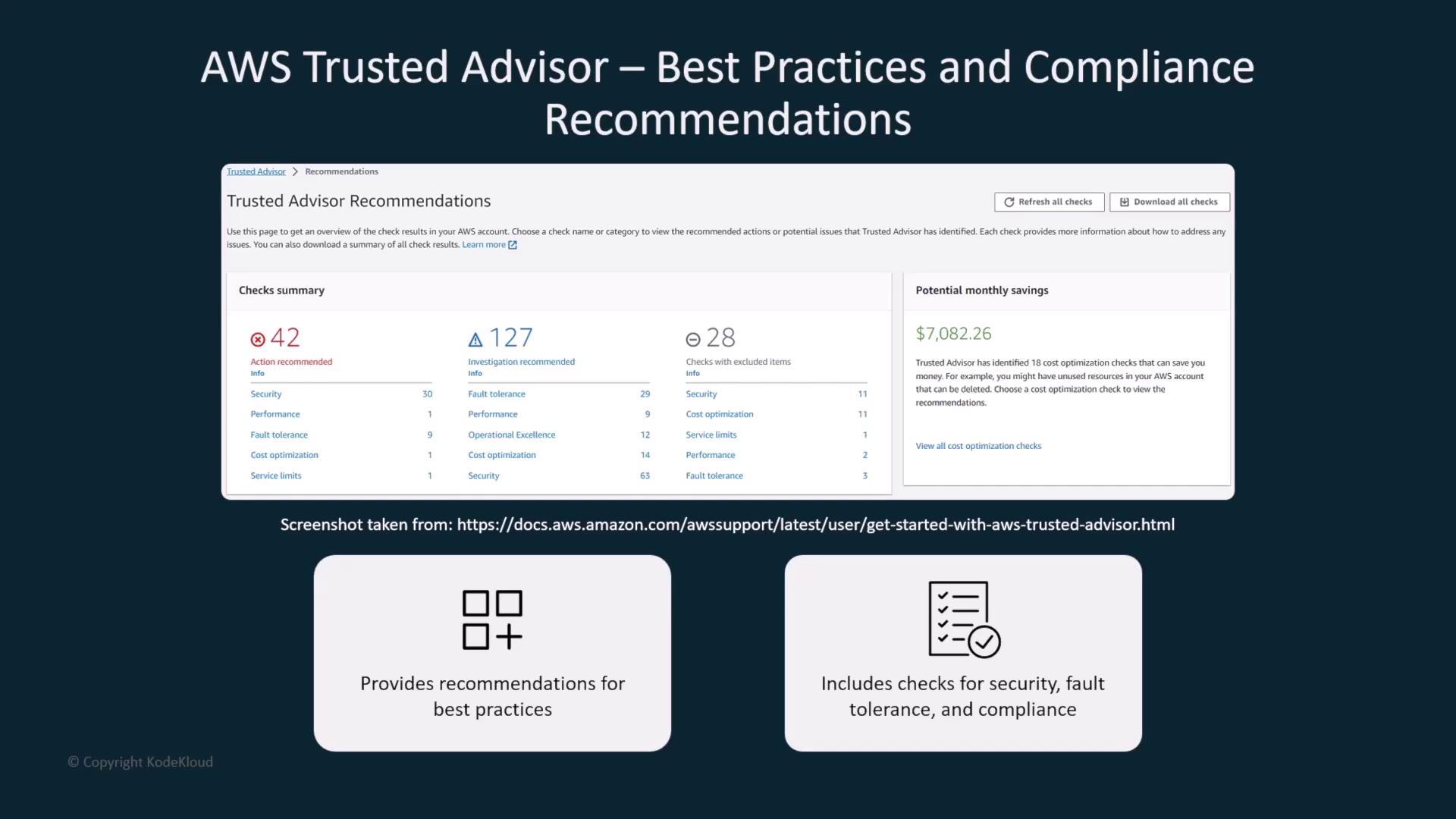
Conclusion
This guide has provided an overview of several key AWS services that facilitate governance and compliance. While not exhaustive, these tools offer a solid foundation for managing regulatory compliance and data governance in the AWS ecosystem. For additional details and in-depth service information, explore further AWS documentation and certification resources. By leveraging these services, you can streamline compliance processes, ensure robust data governance, and maintain a secure and compliant cloud environment that meets industry standards and enterprise requirements.For more insights into AWS governance and compliance practices, consider exploring the AWS Compliance Center and additional AWS security blogs.